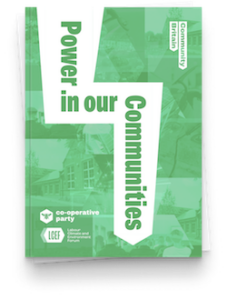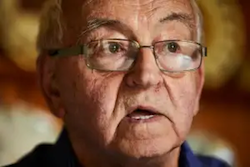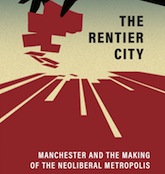The success of Sheffield Renewables has shown how attitudes to energy policy can be changed with local engagement and a co-operative business model that offers much more than profit. DAVE BERRY explains.
In Greek mythology Sisyphus was punished for offending the gods. His punishment was to push a huge boulder up a mountainside only to see it roll back down and his task begin again. Renewable energy policy can sometimes seem a bit like the punishment of Sisyphus as policy changes can take years of hard graft only for reverses to roll back progress.
 Community engagement in energy policy can change that, or at least lighten the boulder and flatten the mountainside. Valuing and engaging community support can lessen the political load and speed up the progress we need to make by 2030 and beyond. Here in Sheffield we are trying to do our share.
Community engagement in energy policy can change that, or at least lighten the boulder and flatten the mountainside. Valuing and engaging community support can lessen the political load and speed up the progress we need to make by 2030 and beyond. Here in Sheffield we are trying to do our share.
Sheffield Renewables is a community benefit society operating in the community energy sector. We tend to describe ourselves as a co-operative to the general public who have little knowledge of the history of community benefit societies, or our original form as an industrial and provident society. But there are few who don’t know about “the Co-op”, and for many it played a huge role in their lives growing up and is regarded with affection.
Sheffield Renewables was formed in 2008 by a mixed group of students, retired engineers, businessmen and ex-public sector workers. Some had been environmental campaigners while some just felt they had skills and enthusiasm to offer to renewable energy.
We could have become a private company or a charity but there was a feeling that a business model with a history of equity and democracy, and an ethos of co-operation, was an attractive alternative to naked capitalist competition and fitted with the ideas of change. For some, the orthodox approach was part of the problem, not the solution. Our motivations were to find a working economic model that offered much more than just profit. The aim was to promote change with a model that was neither the state nor the market.
With the help of Co-ops UK and a grant from the local authority we became constituted and set off on our first project – to bring back hydro power to Sheffield’s River Don. That project didn’t come to fruition despite three years of work, although by then we had grown to more than 250 members with a solid core of volunteers and capital of £250,000, raised through a community share offer.
Our members were still enthusiastic and charged us with finding alternative projects. Ed Miliband’s Feed in Tariff (later reduced then abolished by the coalition government) offered us an opportunity to look at placing solar panels on community buildings, and the art of co-operation and networking paid dividends. Contact with Brixton Energy showed us what was possible, even in an urban location, and we were able to follow their progress alongside our own.
Measuring value
Now, 10 years later, we own, have funded and operate five solar schemes across South Yorkshire. Four benefit from some element of the Feed in Tariff, while our most recent is a commercial model made possible when fossil fuel prices spiked. Our sites range from a school to a police station, a workers’ co-op selling whole foods, a community centre and a co-housing scheme.
 We have generated more than 1.5 million kilowatt hours of renewable electricity, our investors receive interest annually of 3%, and our partners get electricity at below market rate. We are currently working with the NHS too, helping GP surgeries with sustainability, and have a large-scale renewable project looking to decarbonise agriculture.
We have generated more than 1.5 million kilowatt hours of renewable electricity, our investors receive interest annually of 3%, and our partners get electricity at below market rate. We are currently working with the NHS too, helping GP surgeries with sustainability, and have a large-scale renewable project looking to decarbonise agriculture.
We recognise that even a million and a half hours of “green” electricity won’t halt climate change, that 3% interest won’t stop austerity and that we haven’t defeated the fossil fuel economy. Under the world’s current economic measurements, that was never possible.
So how do we measure the value we have brought to South Yorkshire and beyond as a group of co-operators? How does our work add to the aims of the green new deal? We believe our projects have multiplier effects that can be replicated everywhere and add benefits that the market and state cannot replicate in the current economic and political climate.
All our schemes are different and have benefitted in different ways. Our scheme with South Yorkshire Police proved the viability of solar panels on their buildings and they funded more schemes themselves. With the school, the educational value of sustainability was shared with staff and pupils. At the community centre and the workers’ co-op, cheaper utilities have been vital to their success as community businesses, as well as adding sustainability to their outcomes. And for the co-housing group, our small project helped share the load for a group of volunteers managing the construction of 12 flats and 10 houses.
Over the years, our board and volunteers have also needed to be renewed as many volunteers have gone on to careers in renewable energy while our first general manager is now the chief exectuive of Community Energy England based in Sheffield. Our feasibility studies have convinced other organisations to fund schemes themselves and our original co-operation with Brixton Energy has been replicated as we have mentored newer community energy groups. Through partnership with our local installer, we have developed a strong reliable service while helping to provide jobs in an industry that has seen difficult times. Our record has attracted local attention, too, and we are consulted for advice by individuals and groups.
While our investors continue to receive their 3% interest, our community benefit fund has distributed almost £40,000 to local groups working in fuel poverty areas, providing energy efficiency to refugee housing, while internationally we’ve funded solar schemes in Africa and South East Asia, and tree planting projects in Malawi.
Building trust
Our greatest asset is our position between the state and the market giving us the opportunity to build trust in a sector that has seen market and state schemes come and go with mixed, if not disastrous results. Technological solutions and modern online communication only seems to have heightened the distrust.
 The failure of the Conservative’s green new deal and problems with the government’s ECO4 scheme have shown that communities are looking for trusted organisations with a different agenda, ones that are locally based and well-known. Outsourcing and procurement by local authorities has also added to community alienation, however well-intentioned the projects.
The failure of the Conservative’s green new deal and problems with the government’s ECO4 scheme have shown that communities are looking for trusted organisations with a different agenda, ones that are locally based and well-known. Outsourcing and procurement by local authorities has also added to community alienation, however well-intentioned the projects.
Demonstrating that real local projects can deliver renewable energy helps rebuild trust and win hearts and minds, while the experience and commitment of volunteers is recognised and valued.
In his article, ‘The Tragedy of the Commons’, published in 1968, Garrett Hardin claimed that only the state could manage resources sustainably outside the market. Unfortunately, today the state appears to have invested its trust in the market.
Hardin was answered by Elinor Ostrom – the first woman winner of the Nobel Prize for economics – whose work showed that for thousands of years communities had been using different economic and governance systems to manage resources for mutual benefit, the environment and humanity. Her book Governing the Commons is a guide for social change still being put into practice today via community wealth building initiatives, such as the Preston model and others.
At a time when winning hearts and minds is difficult in the face of opposition from the fossil fuel lobby and media hostility, co-operatives and community energy projects can play a vital role in advancing the cause of sustainability and economic renewal by showing the value of community enterprise.
—-
Dave Berry is a director of Sheffield Renewables and acts as volunteer project manager.
This article was first published in Power in our Communities, a report published in June 2025 by the Co-operative Party and Labour Climate and Environmental Forum.
You can download the report here.


